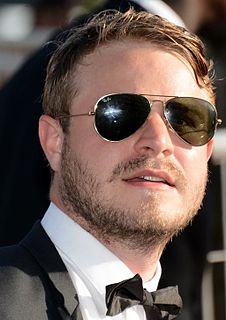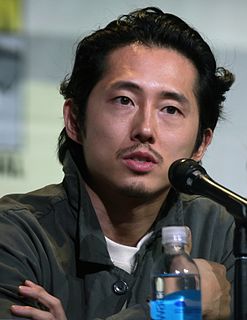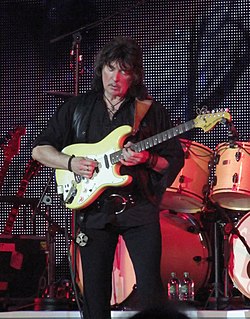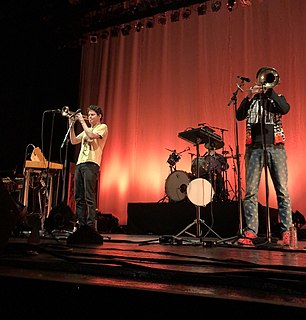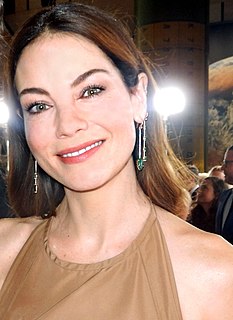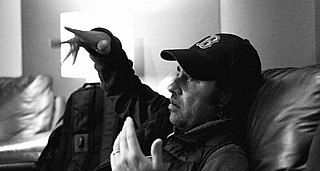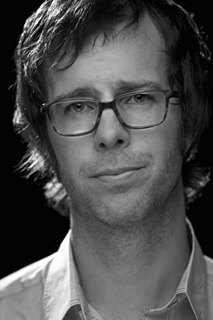A Quote by Brady Corbet
I feel that as a writer and as a performer too. I never really thought about backstory for characters. It was much more of a musical approach: You learn a melody, and then you sing it, I suppose, or you find a rhythm or a cadence that works for the material. And then it's sort of about hitting that note correctly and finding those beats.
Related Quotes
I still feel like if I can get a song to work with, say, a basic beat, a rhythm, some chord changes, and a melody, a vocal melody - if it works with that, then I feel it's written and there's something there. So I intentionally don't get involved with arranging stuff or fussing over the sounds and the edits and the beats too much, at least not in the beginning, because I feel like then you can fool yourself that you've got something there, when you might not.
Having read the source material, I had to have drawn from that. As a fan, I wanted to remain true to that character, but it was really cool because, as we were figuring these characters out, I realized that there was a lot more backstory, rather than what I had gotten just from reading the book. Glenn doesn't really get much of a backstory there. He's just seen as this kid who is put in this situation, not knowing where his mind-set is, but then you slowly see him start to develop.
The amazing thing about the cistern is that, if you're improvising in a dead room, you play your note and then you're left with your thoughts and you have to be really quick on your feet and be able to move through many different musical thoughts seamlessly. Improvising there is just, like, you play a note and then you had at least ten seconds to think, "What would be the perfect accompanying note to that?" And then you could add that note. You can just build this puzzle that was really amazing.
I've always thought that I'm not really a guitar player, but I just practised so much that I developed into a kind of a bit of a musician, but I've often doubted my musical ear. If someone sings me a melody, I have to improvise on that melody, because I can't retain the information they've given me. That's why I still practise today, I suppose, because I still feel inadequate.
I want to get a handle on the music. There's only so much you can do alone. I want everyone else there. I can't wait until we feel we've got it down and we can really figure out what it's all about! I can't wait to meet Harvey Keitel, too! I'm so used to working with musical theatre people... I'm really curious how he works. He's the only one that doesn't sing in the show - he acts and weaves himself through the show as the ring-master. I hope I learn something from him.
Lyrics are what I tend to tear hair out over and they're where I tend to feel weak musically, if I'm being very honest. It is not something I feel like I know anything about; I would not consider myself a writer. I just want to sing, I just want to sing a melody, I just want to feel a melody, and be part of the song, and everything else is not so important.
[True Detective] is an intense show, even in terms of the dialogue - there's a little rhythm to it, in particular in his monologues. I think on those days, he [Woody Harrelson] really had to stay in the zone. Because there's a certain cadence in which that character speaks and talks about life, you know? But then there are other days that he was able to be a little more loose.
I don't want to get too dippy about all this. If you take the view of the scientist and everything is in a state of vibration, then every note is a vibration, which has a certain frequency, and you know that if you put 40 beats into a frequency it's going to be the same note every time. You take that into infrasound and people can be made to be sick, actually killed. Taking it the other way, not to be too depressing, what about euphoria, etc., and what about consciousness being totally... no, I won't go into that one. Time warps.
It felt really radically uncomfortable. And I was really not sure at first about releasing that body of work. But then the more I thought about it, the more I thought that that position, that location, is something that's just sort of interesting in its own right, as an experience, as a process. Again, we're talking about this rubric, this set of rules, this grid that I toss on top of different locations globally. This is what came out of Africa.
